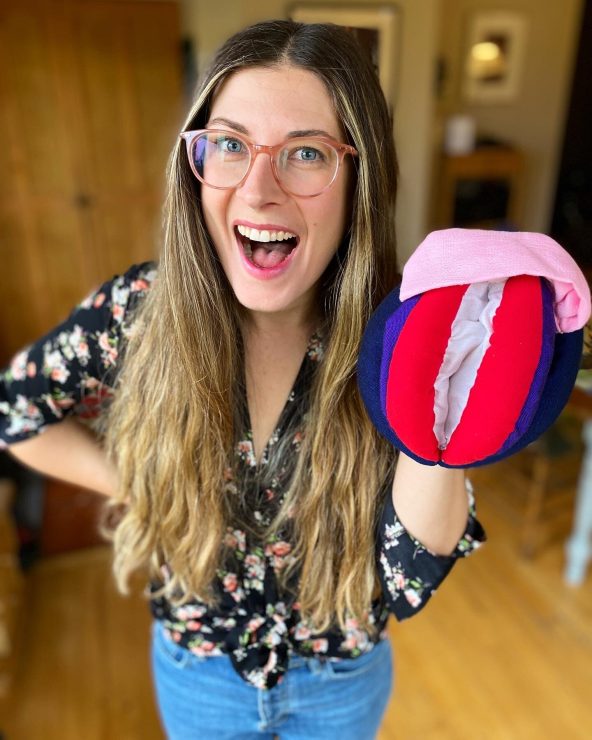Researchers engaging in crucial work for the UVic community and beyond

Photo via leahtidey.com.
There are dozens of professors and researchers at UVic who dedicate their studies to the world of sexuality and gender. We sat down with two of them to hear more about their work and its impact on our community.
Tyrone Curtis is a postdoctoral fellow and public health researcher at UVic. His focus is researching PrEP and its accessibility in Canada.
But what is PrEP? “Prep stands for HIV pre-exposure prophylaxis,” Curtis told the Martlet, explaining that the medication is taken regularly to prevent HIV. “It’s particularly good for people who are at higher risk for HIV,” he said. “That includes men who have sex with men, but also substance users and heterosexual people who have a partner who has HIV and [is not] on regular treatment.”
According to Curtis,“It’s 99 to 100 per cent effective at preventing HIV if it’s adhered to properly.” This type of drug isn’t new — it has been used in the past as a treatment for HIV, and PrEP was first approved in Canada in 2016, he explained.
Curtis’ research is centered around the idea that, despite having such a powerful drug to prevent HIV, cases of this disease are still common. “Why are people not accessing PrEP when it’s available to them, particularly in a place like B.C. where it’s available for free?”
Curtis holds focus groups, for those with the potential to be affected by HIV and also for healthcare workers and policy makers, to hear what people have to say about PrEP. He looks at systemic and personal barriers that people face in accessing the drug.
The biggest problem in PrEP accessibility is simply awareness, said Curtis. “I’m constantly surprised at how many people I meet, in the queer community but especially beyond [it], who have just never heard of this.” He added that even healthcare providers are often unaware of PrEP.
On top of his research, Curtis is a sessional instructor for a biostatistics course, which is part of the master of public health program. He helps students understand the value of statistics in assessing public health.
“My background before I got into health research was math and physics, and that’s why I got into medical statistics and epidemiology,” Curtis explained. “I wanted to use that background but in a way to help people and help members of my community.”
Curtis noted that, though statistics plays a big part in his work, he is a mixed-methods researcher. “I understand that statistics can only tell us so much, and it’s why [we] also need to do qualitative research to get some understanding of why statistics are showing you what they are.”
“I love seeing more promotion of talking about sex and sexuality because it’s something that is almost forbidden,” said Curtis. “It’s a great way of making people feel seen and [letting them] know that there’s other people out there like them.”
Like Curtis, Leah Tidey is a sessional instructor at UVic. She’s also a certified sexual health educator and a podcaster. Tidey took a Healthy Sexuality course during her undergrad at UVic and it inspired her to pursue sexual education as both an area of research and career.
However, Tidey’s PhD is in applied theatre. “What I decided to do was to use theatre … to talk about sexual health,” she told the Martlet. “That started me on my journey of talking about older adults and youth.” Tidey was interested in how these age groups interact with sexuality because of the judgement that they face for being outside of society’s “normal” image of people who engage in sex.
Tidey described her training process to become a sexual health educator, which involves being observed while teaching, as daunting. “But it’s incredibly empowering,” she added. “I didn’t have access to this information when I was growing up, so I had to do a lot of learning and unlearning.”
Tidey also enjoys her sessional work at UVic. “I’m always amazed by the thoughtfulness and the expertise that comes from students,” she said. “I’m teaching a third-year class, Promoting Healthy Sexualities, so I get to have students from all across campus … The joy is having all of these students in one place to share their perspectives.”
Tidey’s podcast, The Love Doctor, began during the height of COVID-19, just after she finished her PhD. She brings in a different guest for each episode and dives into their areas of expertise.
“One of the most important things is that talking about sex and being a sexual person is not something to be ashamed of,” said Tidey. “I can’t give everyone every bit of information that’s going to be helpful to them, but hopefully I can hold the space [that’s] safe and comfortable.”







